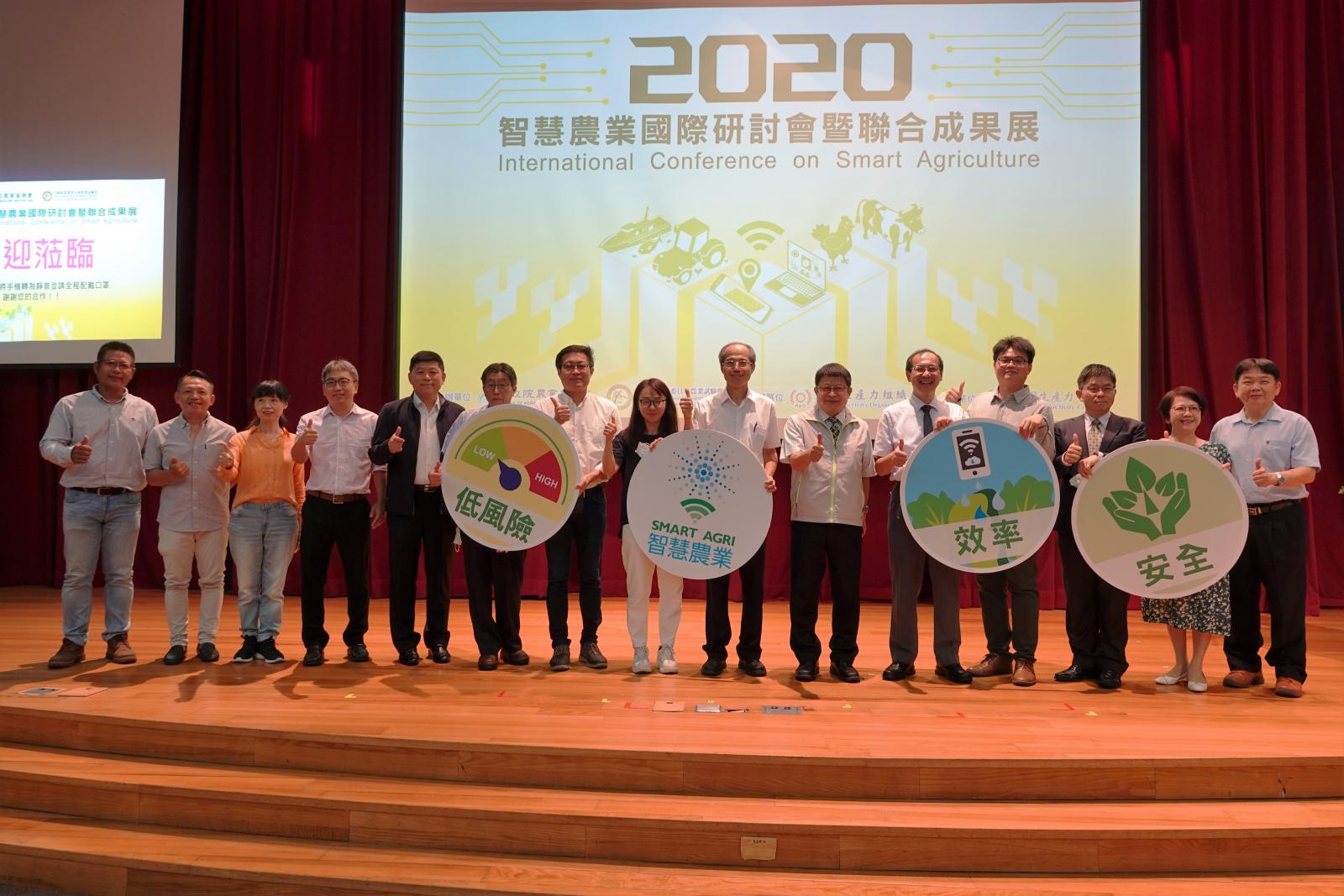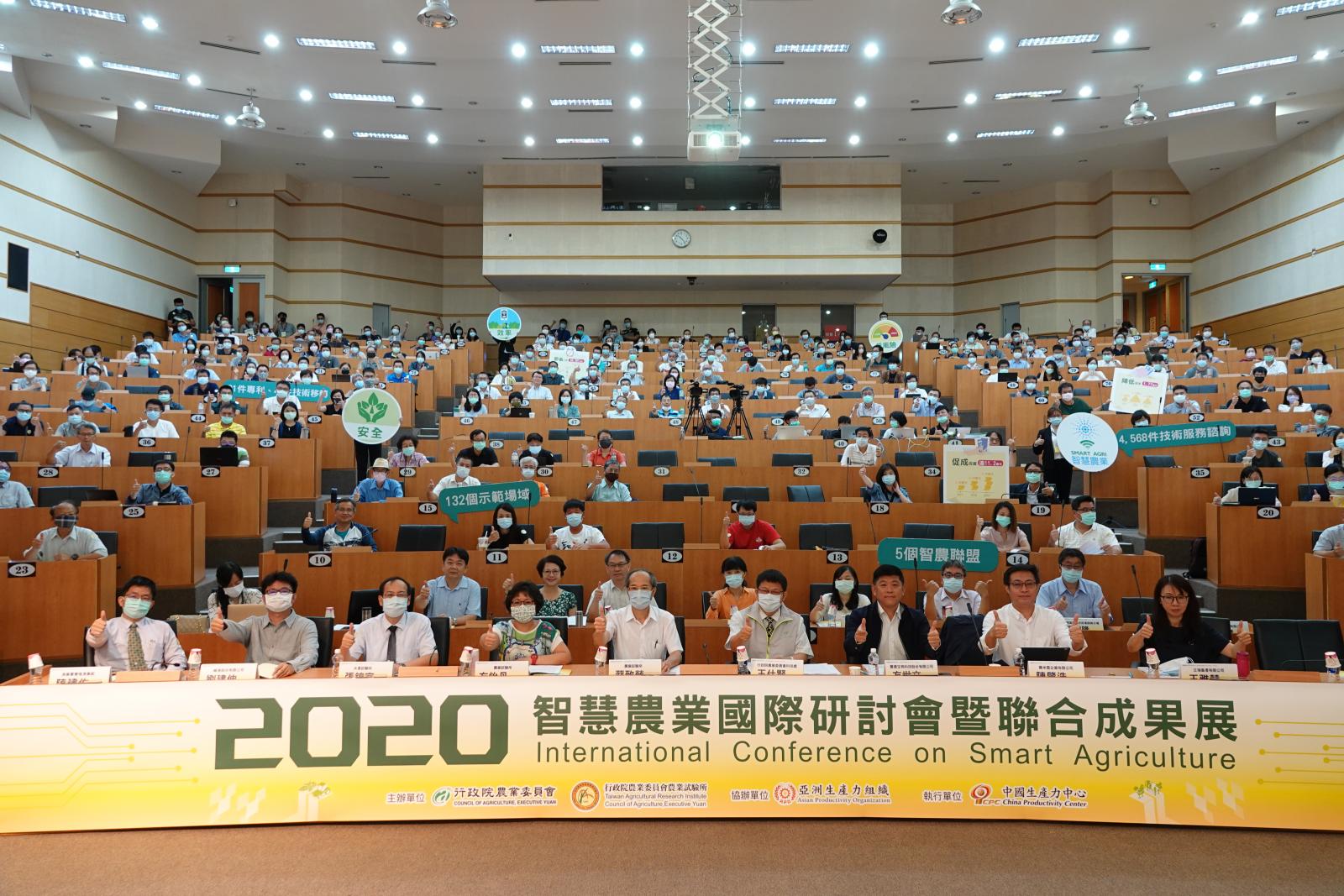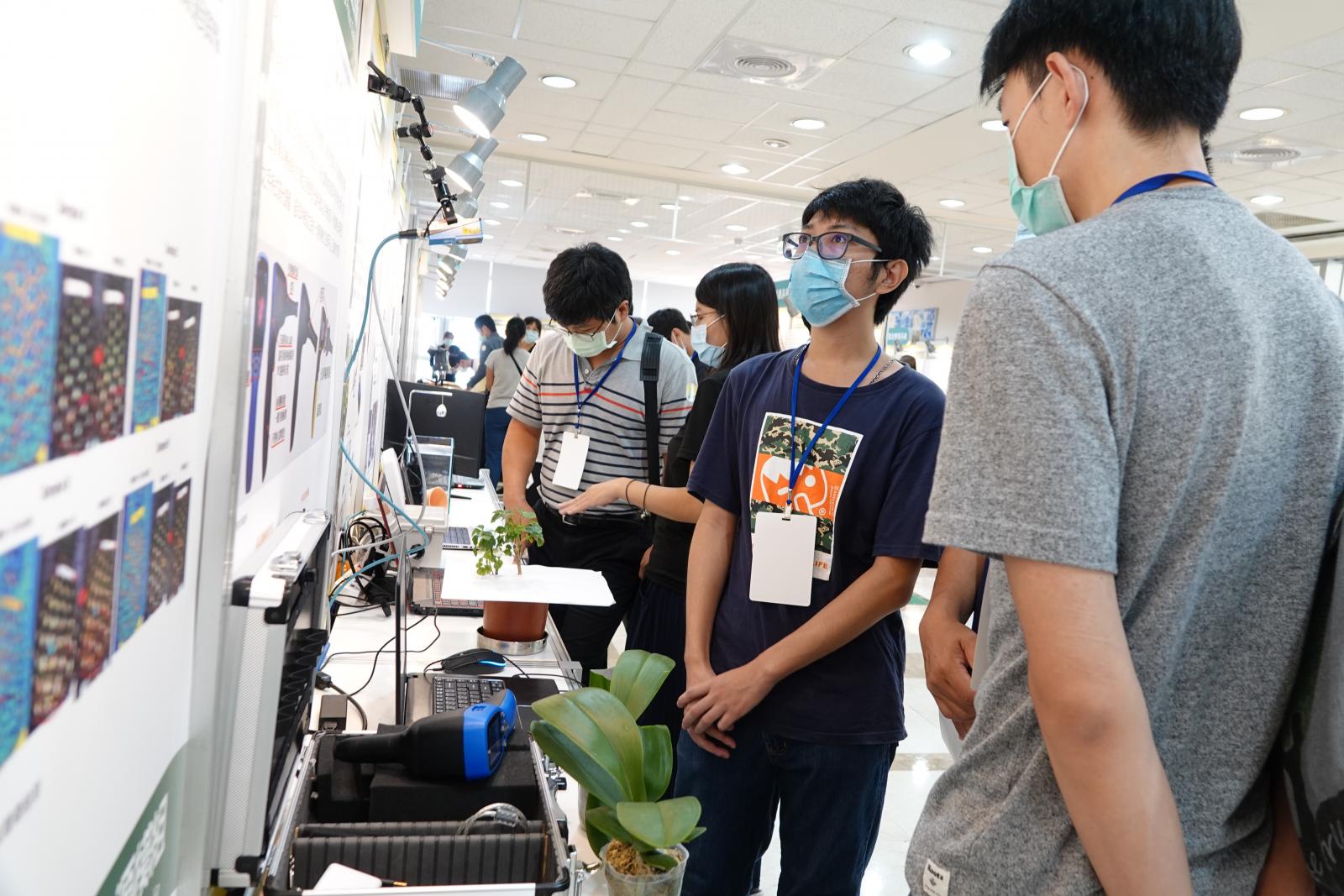News
The “2020 International Conference on Smart Agriculture”: Industry and Academia Work Together to Make Taiwan Agriculture Smarter
On June 15 and 16, the Council of Agriculture (COA) of the Executive Yuan held the “2020 International Conference on Smart Agriculture” at the international conference hall of the library at National Chung Hsing University. Through an online video meeting, experts on agricultural industries were invited from the UK, the Netherlands, Japan, and Taiwan to share technology applications for smart agriculture and discuss future development trends. There was also an on-site exhibition of successes in the R&D and application of smart agriculture technologies, fully demonstrating the abundant results achieved since the COA began to promote smart agriculture back in 2017. It is hoped that this event will spur even more diversified human resources to dedicate themselves to agricultural industries, to provide such industries with even more innovative solutions, and to invigorate the development of smart agricultural industries in Taiwan.

The COA points out that in order to resolve the numerous issues facing agriculture (including climate change, a changing population structure, and trade liberalization, as well as food safety and environmental issues that citizens have concerns about), the transformation to smart agriculture in Taiwan is being promoted through two main orientations: “smart production” and “digital services.” Cross-disciplinary integration is being done using information and communications technology (ICT), the Internet of Things (IoT), cloud computing, and Big Data, and innovative models are being thought up for every stage from production to processing to marketing. Technology is being introduced to assist in the digitization of data to precisely analyze the needs of industries and consumers, and agricultural problems are being solved through smart operating methods.
The COA points out that in order to resolve the numerous issues facing agriculture (including climate change, a changing population structure, and trade liberalization, as well as food safety and environmental issues that citizens have concerns about), the transformation to smart agriculture in Taiwan is being promoted through two main orientations: “smart production” and “digital services.” Cross-disciplinary integration is being done using information and communications technology (ICT), the Internet of Things (IoT), cloud computing, and Big Data, and innovative models are being thought up for every stage from production to processing to marketing. Technology is being introduced to assist in the digitization of data to precisely analyze the needs of industries and consumers, and agricultural problems are being solved through smart operating methods.

The COA points out that in order to resolve the numerous issues facing agriculture (including climate change, a changing population structure, and trade liberalization, as well as food safety and environmental issues that citizens have concerns about), the transformation to smart agriculture in Taiwan is being promoted through two main orientations: “smart production” and “digital services.” Cross-disciplinary integration is being done using information and communications technology (ICT), the Internet of Things (IoT), cloud computing, and Big Data, and innovative models are being thought up for every stage from production to processing to marketing. Technology is being introduced to assist in the digitization of data to precisely analyze the needs of industries and consumers, and agricultural problems are being solved through smart operating methods.
The COA states that nearly 400 people from industry, government, and academia enthusiastically participated in this two-day event, which combined the International Conference on Smart Agriculture with an exhibition of diverse R&D results from leading industries. It is hoped that through practical adoption of cross-disciplinary and forward-looking technologies, Taiwan can integrate the capabilities of all sectors to upgrade production value and change production operational methods, adjust the industrial structure and promote continued refinement of agriculture, resolve the difficulties and bottlenecks faced by agriculture in Taiwan, and encourage the sustainable development of domestic agriculture.

